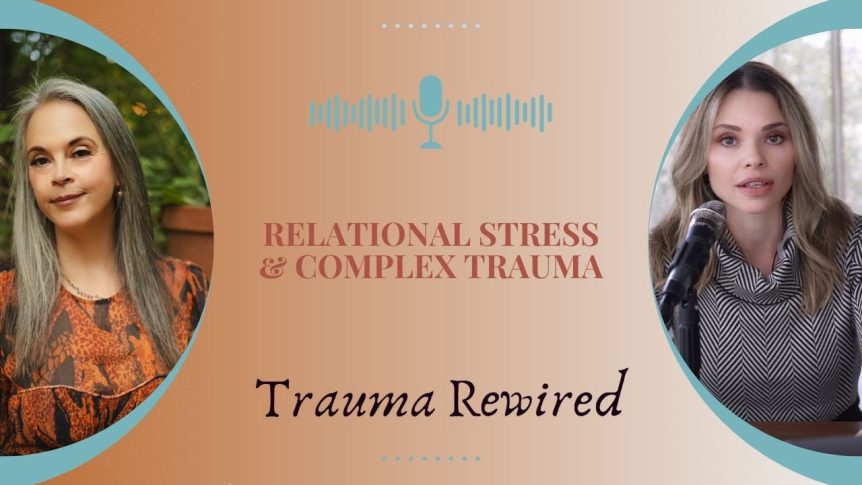
What happens in the brain when a stress response is activated ? How does developmental trauma shapes our nervous system and subconscious reactions as adults? Today, we’re answering those questions and diving deeper into how the brain develops through social interactions, why social connection is a survival need, and what happens in the body when we experience connection with other people.
Matt Bush joins us to discuss the impact of trauma on the brain’s functioning, and therefore, our relationships, expression, sense of safety, and overall health. We talk about what happens when you’re not primed for connection in childhood, how the brain is wired to be part of the social structure in relationships, what part of the brain guides us toward dysregulation and protective outputs, and lots more.
In this episode we delve into the intricate relationships between high ACE (Adverse Childhood Experiences) scores, developmental trauma, and their lifelong impacts on individuals’ stress levels and physical health. The conversation highlights the critical role of early childhood experiences, particularly the bond with caregivers, in shaping one’s ability to manage stress and form healthy relationships. We know that connection is crucial to our survival as humans, but for those with complex trauma, even the healthiest relationships can trigger a stress response and lead to maladaptive behaviors.
This episode provides a comprehensive look at how stress impacts our relationships and physical health, and highlights the importance of consistent nervous system training to rewire the brain’s response to stress and build resilience. We discuss chronic inflammation and its connection to social threats and shame, noting that these emotional stressors can trigger physical responses.
You’ll also learn why complex trauma is an attachment wound, and most importantly, that change is possible and how you can get started NOW. Tune in for all this and more!
Talking Points:
Impact of high ACE scores and developmental trauma on stress levels and physical outcomes.
Influence of early childhood experiences on the HPA axis and long-term stress responses.
Role of attachment theory and the impact of caregiver availability.
Relationship between social threats, shame, and inflammatory responses.
Importance of training the nervous system through neurosomatic integration (NSI) tools.
Personal narratives on managing complex PTSD and changing attachment patterns.
Exploration of the OODA loop in processing and responding to environmental stimuli.
Emphasis on the potential for neuroplasticity and intentional change in nervous system responses.
If you would like to WATCH the episode and/or have closed captions, check out our Trauma Rewired YOUTUBE channel!
If you need access to transcripts of this episode, you can find that HERE on Apple Podcasts.
Learn more about the Neuro-Somatic Intelligence Coaching program and sign up for the next cohort enrolling now! https://www.neurosomaticintelligence.com
Connect with Matt Bush: https://www.nextlevelneuro.com/ matt@nextlevelneuro.com
Get started training your nervous system with our FREE 2-week offer on the Brain Based Membership site: https://www.rewiretrial.com
Connect with us on social media: @trauma.rewired
Join the Trauma Rewired Facebook Group! https://www.facebook.com/groups/761101225132846
FREE 1 Year Supply of Vitamin D + 5 Travel Packs from Athletic Greens when you use our exclusive offer: https://www.drinkag1.com/rewired